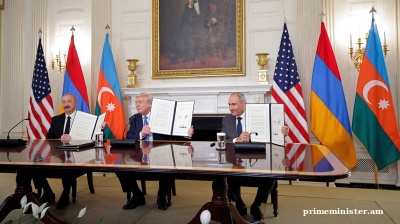By retaining firm control over its critical mineral exports, China continues to prioritise strategic leverage and industrial competitiveness over trade liberalisation, according to analysis by Leah Fahy, assistant economist at Capital Economics.
Despite a reported increase in rare earth metals (REMs) exports in June, the underlying trend remains one of restriction. "While China’s June trade data showed a pick-up in exports of rare earth elements, shipments remain well below pre-Liberation Day levels," Fahy noted on July 23. The sharp downturn began in April when Beijing imposed new export controls on REMs and rare earth magnets.
The move triggered a global response, particularly from the United States. China is responsible for about 70% of the world’s REMs production and plays a dominant role in the extraction and processing of other critical minerals essential for electric vehicles, semiconductors, military hardware and renewable energy infrastructure. Facing pressure from its trading partners, Beijing agreed to accelerate the pace of export licence approvals in June.
“June trade data suggests that Beijing has followed through on this commitment – exports of REMs more than doubled between May and June,” Fahy said. However, volumes are still almost 40% lower than they were a year earlier, and the trend for other critical minerals continues to point downward.
According to Fahy, “China now exports just over half the value of critical minerals that it did at the end of last year.” Even when measured by weight – a less precise but directionally important metric – exports excluding graphite are down approximately 20% year on year.
While US President Donald Trump recently announced that China had agreed to supply “full magnets, and any necessary rare earths… up front,” Fahy notes that the terms are far from open-ended. “The new licenses that are now being granted to supply US firms only last six months,” she said.
Moreover, Beijing issued rare earth mining quotas for 2025 to state-owned enterprises last month, bypassing the usual public notification. “China is showing little sign of being willing to loosen its control of the world’s supply of critical minerals,” Fahy said.
Export controls, she argued, are not just a bargaining chip in trade negotiations but a central element of China’s long-term industrial policy. “By limiting the rest of the world’s access to critical minerals while keeping supply abundant in China, they give Chinese manufacturers a competitive edge in strategic industries.”
Despite the geopolitical risks, the economic cost of these restrictions to China is minimal. “Critical minerals account for less than half a% of China’s exports,” Fahy noted, making them an ideal lever with little domestic trade fallout.
“The upshot is that, while China’s relationship with the US seems to be warming, Beijing will continue to keep a tight grip on critical mineral exports,” she concluded.
Opinion

COMMENT: US-brokered Armenia-Azerbaijan peace deal exposes Russia’s strategic failures
The recent peace breakthrough between Armenia and Azerbaijan is a major diplomatic win for the United States and a setback for Russia, according to a new report published by the Atlantic Council.

COMMENT: Why Beijing will never take Taiwan
Xi Jinping needs to think again before he sends so many young Chinese men and women to their deaths on Taiwan, for if the PLA does one day dare to land, they will be buried here.

COMMENT: Ukraine’s coming financial storm
“A crisis is drawing ever closer. It will break in Ukraine, but it won’t begin on the frontlines, where the country’s battle-weary brigades continue to impose a brutal cost on the Russian invader," writes Timothy Ash of BlueBay Asset Management.

BEYOND THE BOSPORUS: Performance postponed. Hotly anticipated “CHP” trial pushed into October
Every Turk up and down the country has an opinion on what Erdogan is up to.



